‘We were deceived’: China’s ‘vile’ attempt to weaponise coronavirus against enemy state exposed
China has been labelled “extremely evil” as evidence mounts it has been “weaponising” the coronavirus event against its enemies.
The World Health Organisation (WHO) has been effusive in its praise for China’s handling of the coronavirus outbreak. But don’t dare mention Taiwan.
The Chinese-democracy’s doctors are being sidelined at international crisis conferences. They’re not included in global medical mailouts. In fact, any suggestion of their presence is deemed a political insult to Beijing.
It’s a deadly scenario for the island nation of 24 million. How can it get the best information, by the fastest means possible, to protect its people?
It may be against Beijing’s best interests to give it to them.
President Xi Jinping has declared Taiwan “must and will be” integrated with China. Xi also asserts Taiwan falls under Beijing’s “domestic politics” and that any “foreign interference is intolerable”.
Now, just days before Taiwan reported its first death from Covid-19, Beijing has made one of its most provocative moves in months. Chinese fighters and bombers flew around the island last week. Then a flight of fighters crossed over into capital Taipei’s side of the Taiwan Strait.
“Xi Jinping has to demonstrate he is still in control, he is still a strong leader in China, even though he is facing tremendous challenges as a result of this virus outbreak,” Chinese Council of Advanced Policy Studies head Andrew Yang toldVoice of America.
But Beijing’s coronavirus embargo and provocative military probes are just part of a much bigger picture, argues Australia’s Lowy Institute analyst Natasha Kassam: “Taiwan has a long history of being bullied by China, a situation that many other countries are slowly waking up to”.
RELATED: Proof China hasn’t been telling the truth
RELATED: Coronavirus tolls soars past 65,000
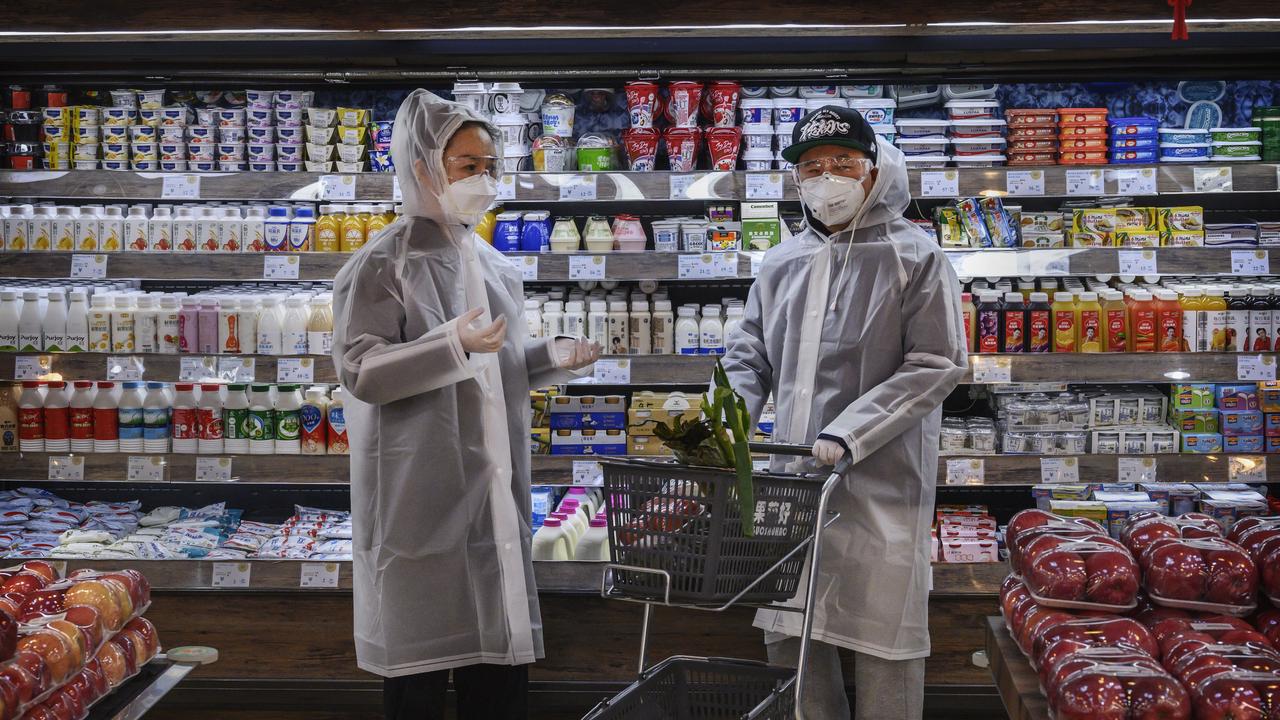
WEAPONISING THE WHO
Taiwan just suffered its first Covid-19 fatality. And the WHO may have blood on its hands.
At a convening of its governing body, the World Health Assembly, last year, one of the few remaining nations to hold formal diplomatic relations with Taiwan appealed on its behalf.
“The only reason that it is not here now is because the government in Beijing does not like the current government in Taiwan,” a representative of the tiny Carribean nation of St Vincent said.
The motion, however, was quickly struck from the agenda. For the fourth year running.
Again, Taiwan was left out in the cold.
Just how cold became evident last month when it was denied entry to an emergency committee of experts assessing the implications of China’s coronavirus outbreak.
“Under what other circumstances would 24 million people be excluded from representation in such an important organisation? Beijing — and the WHO authorities that bend to its will – is allowing political and diplomatic sensitivities to interfere with the administration of global health and safety,” Ms Kassam wrote for Foreign Policy Magazine.
.@WHO, what's wrong with you? First you called us "Taiwan, China," then you changed to "Taipei." You misreported the confirmed cases, & now you call us "Taipei & Environs." Look! Taiwan is #Taiwan & not any part of the #PRC. JW
— 外交部 Ministry of Foreign Affairs, ROC (Taiwan) 🇹🇼 (@MOFA_Taiwan) February 6, 2020
Now, a taxi driver from central Taiwan has died of Covid-19.
The 61-year-old man had not travelled overseas. But he had had contact with travellers.
“This latest case was an unlicensed taxi driver. His main clients were people who had been to China, Hong Kong, and Macao,” Taiwan’s health and welfare minister Chen Shih-chung told reporters.
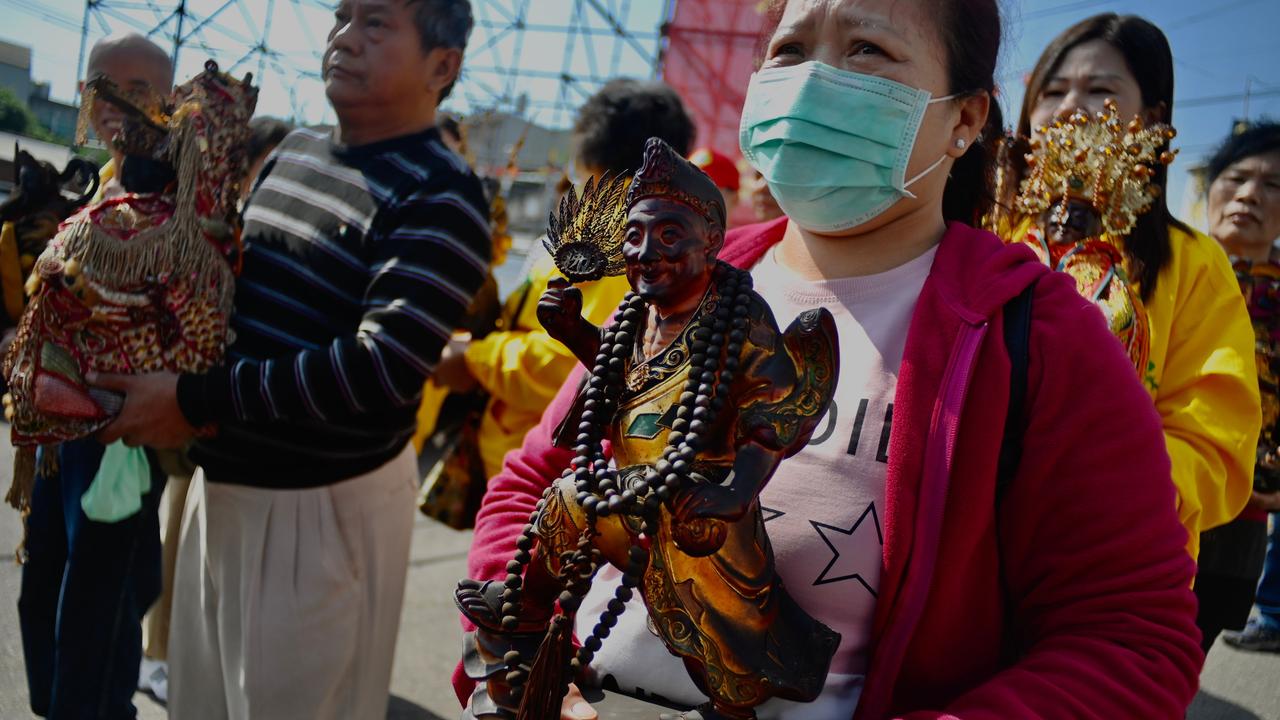
Taiwan now has 20 confirmed cases. And the disease appears to have established itself in the general population.
Its government has good reason to ask why.
Taiwan’s Foreign Ministry spokeswoman Joanne Ou said Beijing was “vile” and “evil” for blocking access to the (WHO) amid the coronavirus outbreak.
“Disease knows no national boundaries, and there should be no loopholes in global epidemic prevention,” Ms Ou said. “Putting political considerations over people’s health and safety; this, basically, is extremely vile.”
Beijing insists it is doing all it can to assist Taiwan. “Taiwan compatriots are our brothers and sisters. If they encounter difficulties overseas, we are always ready to help,” a foreign ministry spokesman said.
REUNIFICATION BY ANY MEANS
“Beijing’s successful attempts to exclude Taiwan from international organisations have serious consequences,” Ms Kassam writes. “While Taiwanese officials receive information on unfolding health crises such as coronavirus from counterparts in China or elsewhere, no formal mechanism exists to ensure that it is received in a timely manner.”
The battle over what it is to be Chinese has been playing out for some 70 years. And it’s a high-stakes game.
The Chinese Communist Party (CCP) insists Taiwan is a “rogue” province. Taiwan’s fledgling democracy insists it’s the legitimate successor to the Republic of China (ROC) forced to flee during the 1940s civil war.
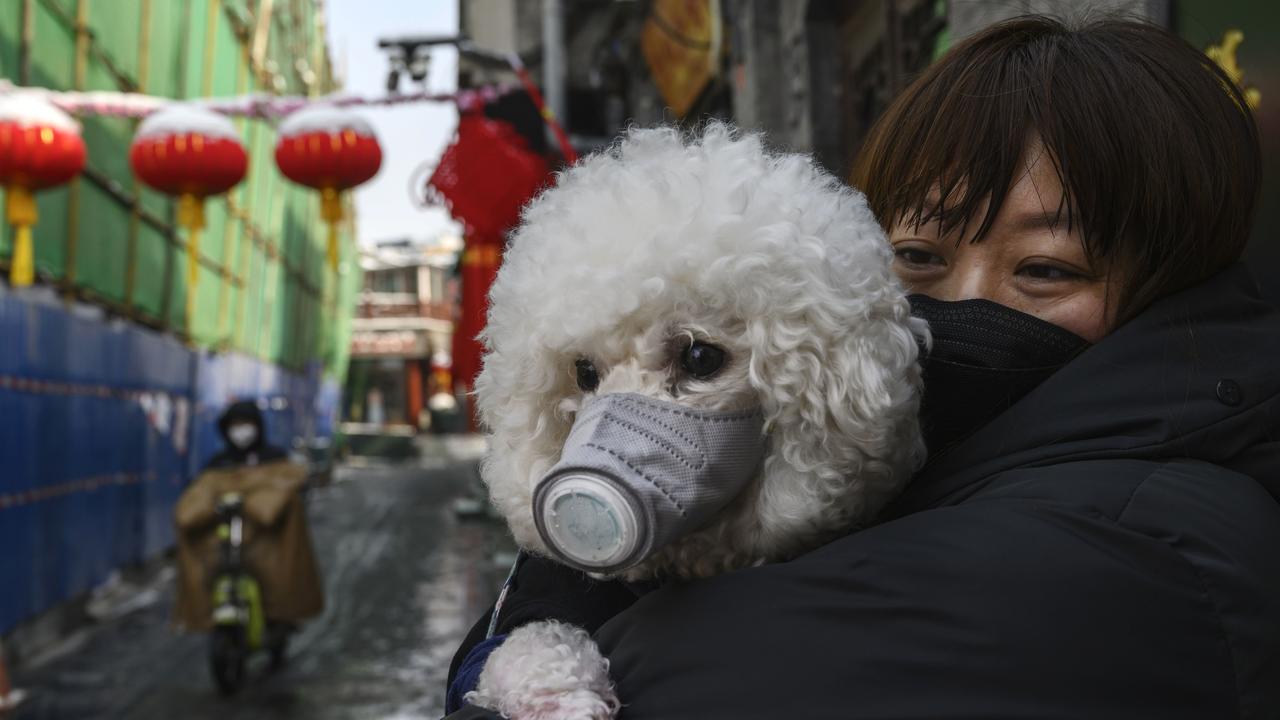
Taiwan itself remains contested.
Territorial tussles between China, Japan, Holland, Spain, China and Japan have raged for some 400 years.
The Dutch first settled in Taiwan in the 1600s, pushing aside its native population in the typically colonial manner of the era. Masses of Chinese immigrants were brought in as cheap labour. Since then, ownership of the island has passed back and forth among major regional powers including Beijing and Tokyo.
Following World War II and the Chinese Cultural Revolution, Taiwan is once again a hotbed of international tension. And that tension has been brushed under the carpet through the West’s one country, two systems’ attempt to appease both Beijing and Taipei.
But Xi also made no promise to renounce the use of force, adding that this message doesn’t target compatriots in Taiwan, but the interference of external forces and the very small number of “Taiwan independence†separatists and their activities. pic.twitter.com/QiabWiDZZH
— People's Daily, China (@PDChina) January 2, 2019
That “fix” was already coming apart at the seams with Mr Xi’s openly stated determination to “reunify” Taiwan with the mainland by any means necessary – including military force.
He told the 19th Party Congress in 2017, “We will resolutely uphold national sovereignty and territorial integrity and will never tolerate a repeat of the historical tragedy of a divided country.
“All activities of splitting the motherland will be resolutely opposed by all the Chinese people.
“We have a firm will, full confidence, and sufficient capability to defeat any form of Taiwan independence secession plot. We will never allow any person, any organisation, or any political party to split any part of the Chinese territory from China at any time or in any form.”
Now, the WHO’s response to the Covid-19 pandemic crisis runs the risk of becoming yet another pawn in Mr Xi’s power play.
“China’s efforts to airbrush Taiwan’s existence and control the international narrative about the inevitability of unification are in part to convince the international community that Taiwan isn’t worth a war,” Ms Kassam wrote.
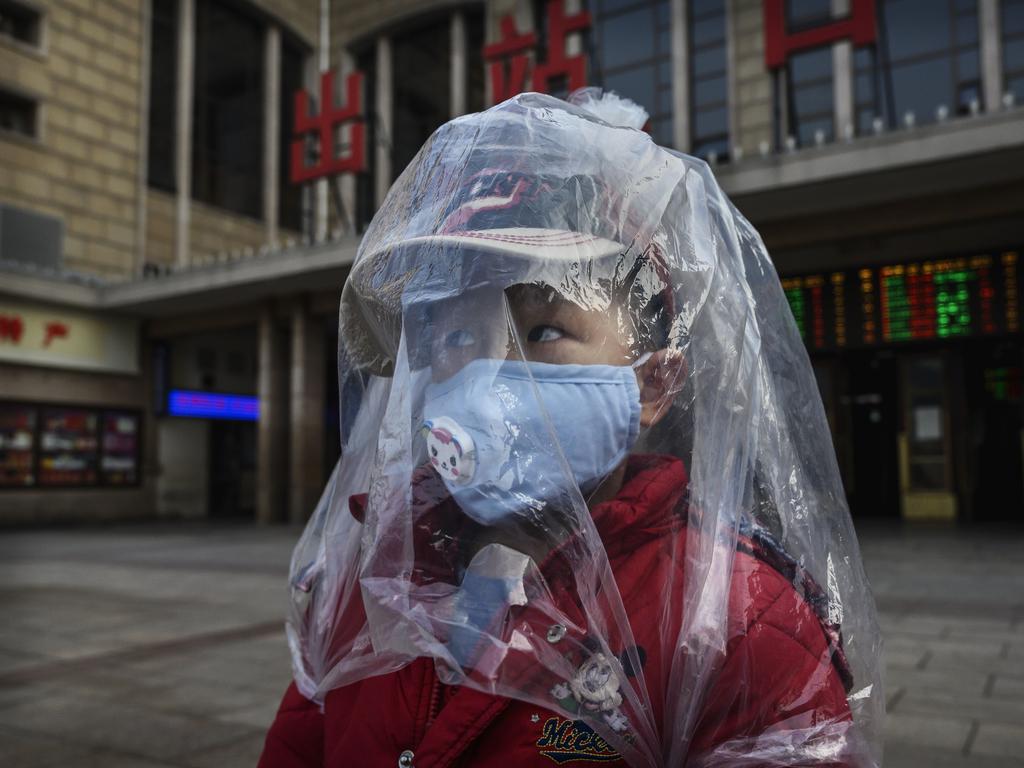
CREDIT WHERE CREDIT IS DUE
The WHO has been full of praise for Beijing’s response to the novel coronavirus outbreak.
In January, WHO director-general Dr Tedros Adhanom sat alongside Mr Xi in Beijing’s Great Hall of the People to declare, “We appreciate the seriousness with which China is taking this outbreak, especially the commitment from top leadership, and the transparency they have demonstrated.”
Some of that praise was warranted.
After all, this was a new disease. Little, or nothing, was known about it.
And China did act quickly – in mid-January. Once Mr Xi declared he had personally taken control of the situation.
Mr Xi’s orders were drastic. Several major cities were put under lockdown. Widespread travel restrictions were imposed. Two new hospitals were erected within weeks. China’s medical system and research agencies were mobilised.
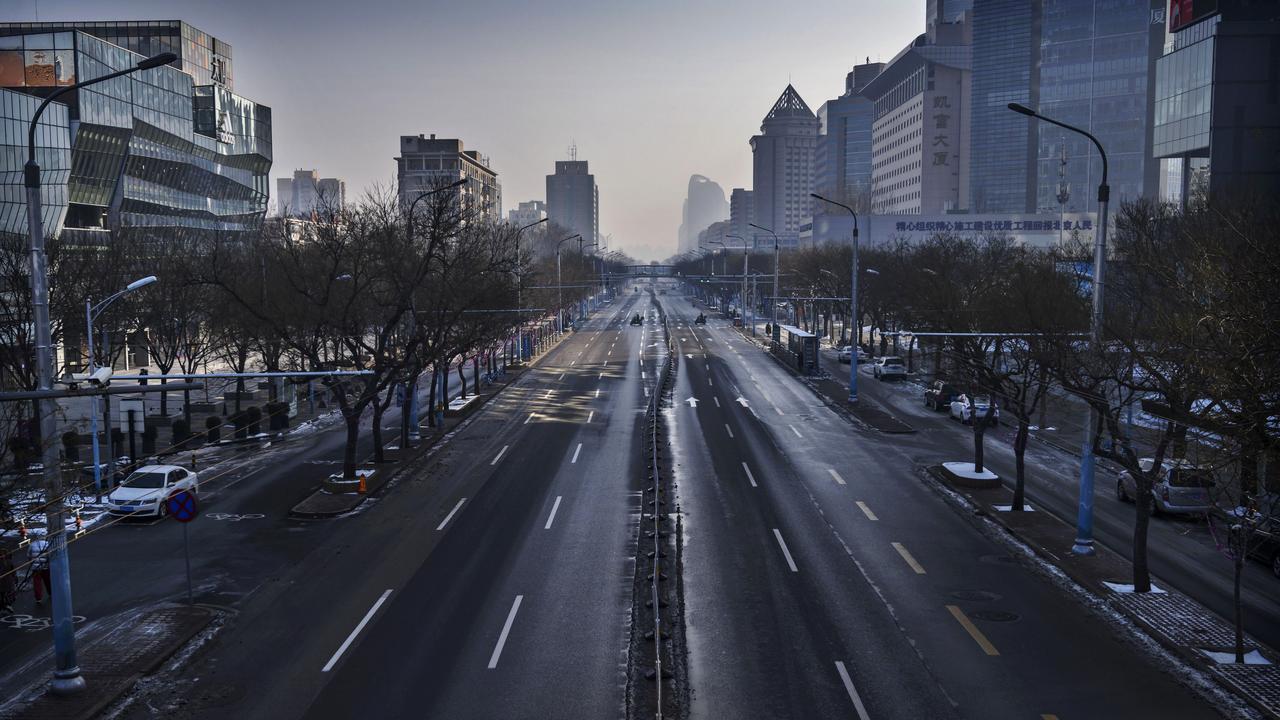
The WHO seemed vindicated. There was no need to declare an international emergency, it said. China had things under control.
Then, it was confirmed the virus could jump from person to person. New cases began appearing around the world. Covid-19 became firmly rooted in Singapore and Japan.
So, on January 30, the WHO declared what the world already knew: this was a global public health emergency.
Again, Dr Tedros was full of praise for Beijing.
“I know there is a lot of pressure on WHO when we appreciate what China is doing, but because of pressure we should not fail to tell the truth,” the WHO director said. “We don’t say anything to appease anyone. It’s because it’s the truth.”
CRITICISM WHERE CRITICISM IS DUE
Communist China has a cultural cringe. It has an aversion to international criticism. It adores international praise.
A quick glance at any of the state-controlled media news feeds will confirm this.
And that’s just one of the reasons why it has a deep-set aversion to government transparency.
So when its own officials – including Mr Xi – began openly criticising local health and government authorities, things had to be serious. Soon, a whole swath of Communist Party officials were about to be sacked.
The WHO didn’t get the memo.
But it continued its high praise for China’s response.
Now, Mr Xi has admitted he was first informed of the coronavirus threat in mid-December.
“We were deceived,” said WHO adviser Professor Lawrence Gostin of Georgetown University. “Myself and other public health experts, based on what the WHO and China were saying, reassured the public that this was not serious, that we could bring this under control.
“We were giving a false sense of assurance.”
Since news first broke of the virus in early January, Beijing has been consistent in its attempts to publicly downplay its impact – both medically and economically. Citizen journalists have been “disappeared”. Whistle-blowing doctors have been gagged. Numbers have been censored.
It’s not ideal pandemic prevention policy.
Now, the WHO says Dr Tedros “welcomes and expects scrutiny of the response effort. (But) everyone’s focus must be on ending the outbreak.”
RELATED: Xi Jinping knew about the coronavirus much earlier than believed
RELATED: China’s latest extreme measure to stem spread of coronavirus
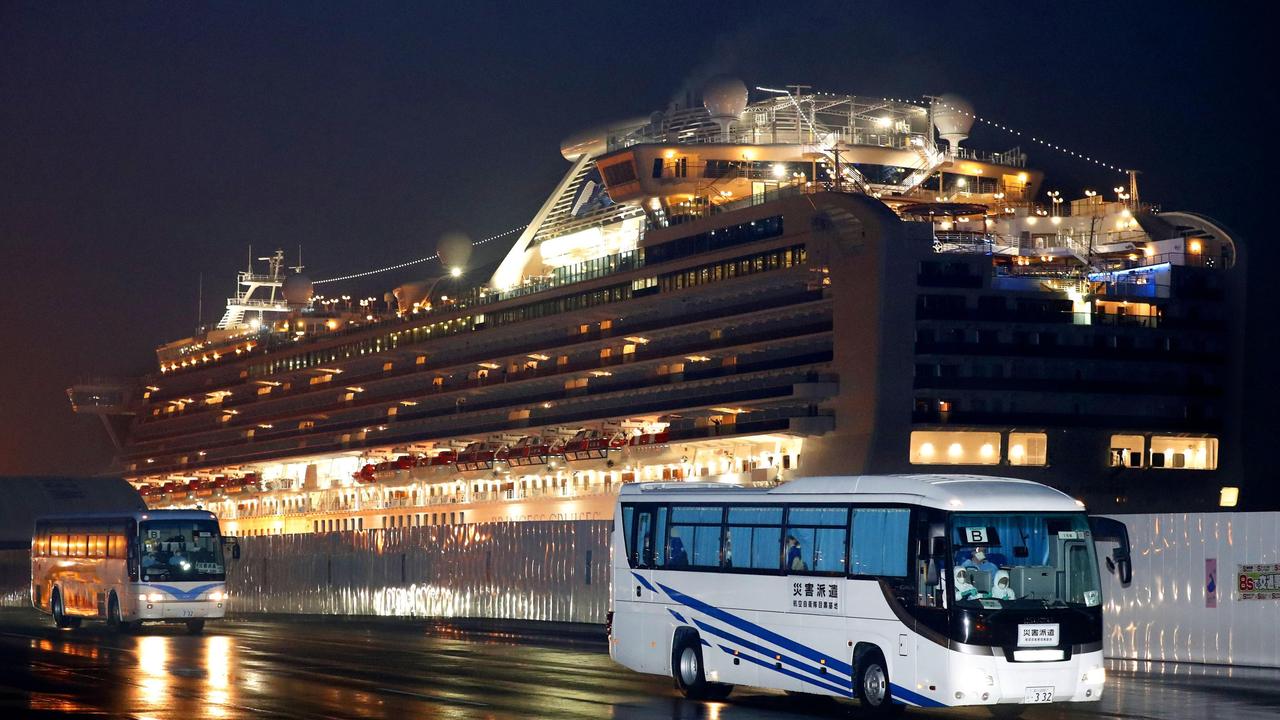
WHO IS TO BLAME?
The WHO has questions to answer now Covid-19 starts to spread through – and kill – Taiwanese citizens.
More and more international medical analysts are expressing their concern.
Isn’t the UN supposed to be independent?
Aren’t its agencies supposed to exist for the good of all?
The WHO is dependent on the voluntary funding decisions of member states and big pharmaceutical companies. It also needs their co-operation to function.
China is a significant source of cash. But Bill Gates and the United States pay a lot more.
So criticism is being directed elsewhere.
WHO director-general Dr Tedros has long ignored questions about his agency’s apparent political partisanship. “We are giving qualified recognition and, actually, my call is: Please, let’s recognise as a world, as a globe, what China is doing and help them and show solidarity,” he repeated last week.
While America has been busy pulling back from global institutions, China has maximised its influence over UN machinery. The CCP abhors a vacuum. That’s been obvious for a while, but recent events at ICAO/WHO have demonstrated alarming levels of organisational capture.
— Euan Graham (@graham_euan) February 15, 2020
But observers have warned for years that the WHO is overly political, bureaucratically bloated, underfunded on the front line, and slow to react.
And the WHO’s very organisational structure may be to blame.
It does not send out its own teams to assess outbreaks of disease. It relies entirely on data supplied by its member states. So it’s only as well informed as affected governments want it to be. And it only passes on information its member states want to be passed on.
But should member states be able to dictate who such medically vital information is passed on to?
“Only international support can resist China’s efforts to erase Taiwan,” Ms Kassam writes. “The coronavirus outbreak is deeply worrying but also a timely reminder that Taiwan needs to be readmitted to the WHO and other international bodies.
“Rather than treat Taiwan as a problem to be resolved, it should be a partner in the challenges that liberal democracies will face over the decades to come.”
Jamie Seidel is a freelance writer | @JamieSeidel




